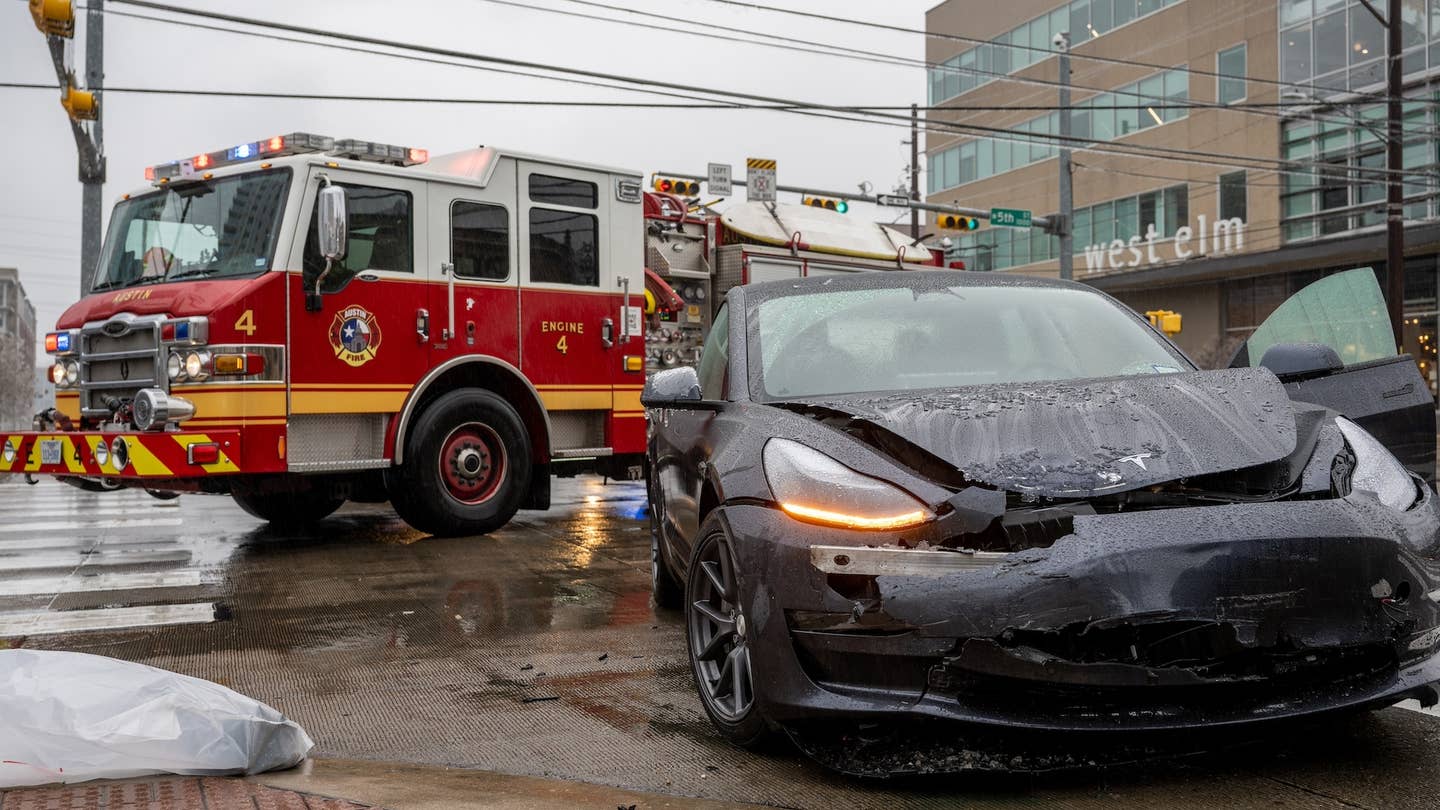Most Americans Wary of Self-Driving Cars as Trust in Tesla Wanes: Study
A survey found 62 percent of Americans think less of Tesla’s so-called Full Self-Driving after a 2 million-car recall.

A few years ago, it seemed like only a matter of time before we could choose to travel in self-driving electric cars. That dream is now crashing down as the EV transition stumbles, and Cruise and Tesla's scandals call into question how close we really are to autonomy on the road. According to a survey by Forbes Legal, most Americans don't think we are, and indicate they skew toward distrusting driverless car tech.
Conducted in January, the survey gathered the opinions of 2,000 Americans from the "general population." Of the respondents, 93 percent said they were concerned about self-driving cars' safety and potential to malfunction; 61 percent said they wouldn't trust driverless cars with their loved ones; and 51 percent said they didn't expect to use (much less own) an autonomous vehicle within five years. Distrust was the most common sentiment in respondents—45 percent of whom said they were somewhat or very distrustful of self-driving car tech, followed by 34 percent who felt the opposite. A further 20 percent were undecided.
Some of Americans' negativity can be directly tied to Tesla's December recall of almost every car it has ever sold in the U.S., totaling more than two million. A lengthy NHTSA investigation found that Tesla's driver monitoring systems were too lax, and that they had played a role in nearly 1,000 crashes involving the company's automated driving assists. (The recall fix may explain widespread failures of Tesla Autopilot computers.) Because of these recalls, 62 percent of Forbes' survey respondents said they had lost confidence in Tesla's automation technologies, such as Autopilot and Full Self-Driving Beta.
These concerns likely build on Cruise's scandal last Fall, which led to the GM-designed driverless taxis being withdrawn from public roads. The California DMV determined that Cruise withheld evidence relating to the October 2 incident where one of its vehicles struck a pedestrian already injured in a hit-and-run and dragged them 20 feet. The NHTSA has also reportedly found that driverless car tech gets into twice as many crashes as human drivers do, causing 9.1 collisions per million miles traveled, versus 4.2 for humans.
This growing skepticism may soon take effect on the autonomous vehicle industry, as Forbes' survey found only 29 percent of drivers will pay a premium for driverless tech. Together, these signify a lack of demand that Forbes believes could slow "growth" (or more likely, prospects overall) over the next five years. It's starting to look like the AV hype bubble is near bursting—but let's wait for dominoes to fall before we call it with certainty.
Got a tip or question for the author? You can reach them here: james@thedrive.com
